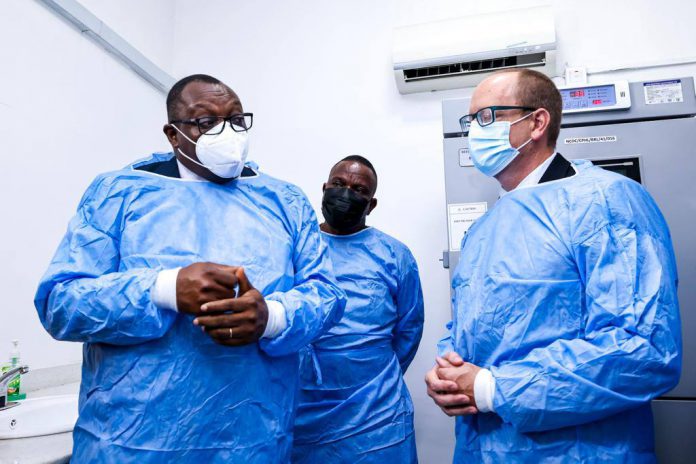A new biorepository facility was commissioned at the Central Public Health Laboratory (CPHL), a campus of the Nigeria Centre for Disease Control and Prevention (NCDC’s) National Reference Laboratory in Lagos.
This project was supported by the United States Centres for Disease Control and Prevention (US-CDC) through their implementing partners, the Institute of Human Virology, Nigeria as part of ongoing efforts to strengthen diagnostic capacity and surveillance for infectious diseases in Nigeria.
One of the strategic approaches to achieving the NCDC mandate is the development and maintenance of reference laboratories across the nation to support the accurate and timely detection of infectious diseases.
A statement signed in Abuja by Dr. Yahya Disu, Head of Communications, NCDC explained that the key component of public health laboratory services is ensuring proper storage of human and animal biological samples such as blood and its by-products (plasma and serum), biofluids (e.g., urine, sputum, etc), genetic material (DNA and RNA) including from pathogens, and the actual pathogens, etc.
A biorepository is an essential element for the preparedness and response to infectious disease outbreaks as it facilitates timely sharing of biological specimens and data and enables facilitates research (including public health research) and development.
This biorepository in CPHL will afford researchers that meet the necessary ethical requirements easy access to well-curated biological samples and data.
The samples made available through biorepositories such as this also aid training, confirmation of proficiency, etc.
The additional sample storage capacity will contribute to increased understanding of infectious diseases through integrated disease surveillance, and research which will inform public health decision-making, and facilitate the development of diagnostics, therapeutics, and vaccines.
The newly commissioned biorepository in CPHL will serve as a national centralised resource for valuable, high quality and well-annotated samples.
It also expands the NCDC’s capacity for biobanking and complements activities at the apex public health laboratory, NCDC’s National Reference Laboratory (NRL) in Abuja which houses the largest biorepository in West Africa.
Nigeria’s long-standing partnership with the United States through US-CDC and the IHVN has translated into strengthening the capacity for public health laboratory services in Nigeria among other things.
The quality storage of biospecimens collected for diagnostic and research purposes in both humans and animals is a critical step for facilitating research that will not only enhance our capacity for the timely detection and response to emerging and re-emerging disease outbreaks but also developing therapeutics and vaccines for the country.
In his remarks, the U.S. Consulate, Consul General Will Stevens at the commissioning noted that “the new facility will support Nigeria’s disease control efforts through the cataloguing and storing of blood samples for future use.
He expressed optimism that the upgraded biorepository laboratory will support Nigeria’s readiness for future epidemic and pandemic responses.
“The commissioning is a major accomplishment of the strategic partnership between the United States and Nigeria to support health security and respond to disease threats,” Consul General Stevens said.












